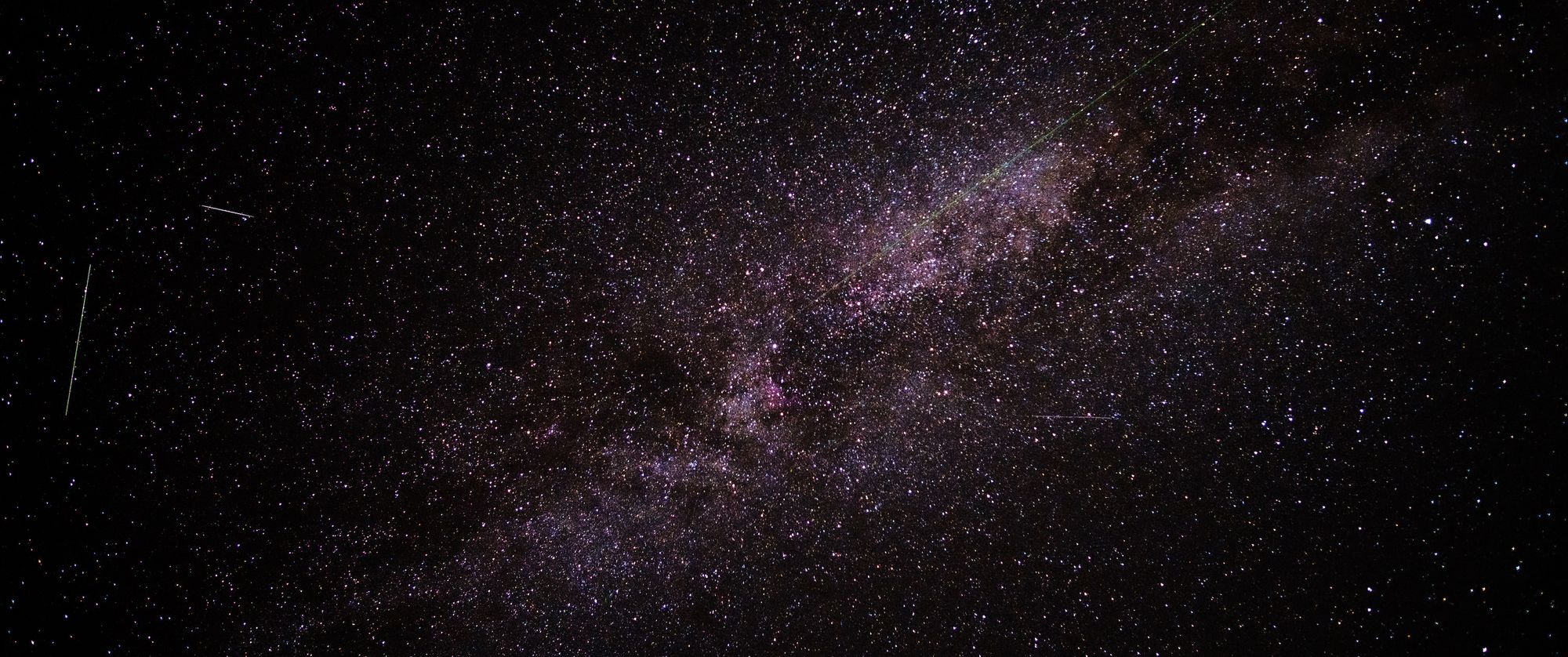Ode to Dark Skies
Light pollution dominates the night sky of urbanised areas, but truly dark skies are out there. It's a good time to seek them out.

Dark skies have been on my mind. I mean, really dark skies: those ones flooded with rich blacks interrupted only by the cosmos, and celestial bodies layered infinitely back in time towards the universe’s moment of birth. Skies where the galactic core of the Milky Way is visible with the naked eye on moonless nights and its endless midriff hangs in the firmament like a natural ghost, arching over our insy planet, charging up every soul on it with who-knows-what. Hovering, alive. Its intentions unspeakable. Skies free of light pollution.
With man-made climate change posing an increasing threat to life on Earth each year, it’s easy to forget the sheer variety of ways we have fucked over the planet in the last hundred or so years.
But light pollution is the most visible, and amongst the most symbolically tragic. From almost any urbanised place, look up at night and witness the washed out blue-white-grey murk, aglow from the ground up, sprinkled with a few stars here and there, but satellites and planes dominating.
